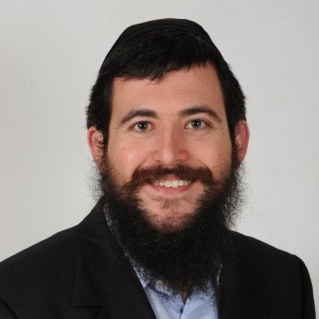
Religion

From anti-Semitism to aerospace travel
Rabbi Yehuda Stern, Sydenham Shul
Friedman was born in the former Soviet Union. His father was arrested shortly before his birth because of his Jewish activity, and he was jailed for seven years. He met his father for the first time in Grade 1, upon his father’s release.
His family would daven quietly in the privacy of their home so that the neighbours would not hear them and hand them over to the KGB (Committee for State Security). He would organise regular sick-notes from a doctor so that he would not need to attend school on Shabbos. After graduating from school, Friedman wanted to study physics, but was prevented from doing so by anti-Semitism at the university. Instead he was told that he could study mathematics.
In 1970, his family made aliyah to Israel. Friedman was soon drafted into the Israeli Airforce, and later went to work in Israel’s aerospace industry. He married, and now has seven children and several grandchildren. On a personal note, his son, Nachum, studied with me several years ago.
Two weeks ago, Friedman and his team of space scientists made history. They sent off Israel’s first spacecraft, Beresheet, to the moon, joining the United States and China as the only countries in the world to accomplish this incredible feat.
Friedman, the Russian boy who was not accepted into the physics course because he was Jewish, is now part of the amazing breakthrough of sending off a spacecraft carrying the Israeli flag and a disk containing the Tanach. This is a true modern-day miracle.
After the episode of the golden calf, Moshe prayed to G-d to forgive the Jewish people. “Please G-d, relent from your wrath and reconsider the bad that you are going to be bringing to your people.” The Hebrew word for “reconsider” is vehinachem. This same word also comes from the word nechama, comfort. Our sages teach that the Hebrew language is full of depth and meaning. So, the question is, what is the connection between “reconsidering” and “comfort” that they are both linked to the same Hebrew word?
Chief Rabbi Ephraim Mirvis answers this question with a beautiful idea. Comfort and pity can come from the outside, from our friends, family, and community. However, more powerful than that is the comfort that comes from within. The inner strength that commits itself to overcoming challenges and moving on. The resolution one makes with oneself to work through difficulties, and grow from the experience. This comfort is the result of “reconsidering” one’s situation, and motivates a change of attitude and mind-set.
Friedman’s life story illustrates this approach. He did not sit back and wait for sympathy or comfort from others, but moved forward to build his family and his career. This his true comfort.




